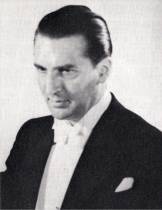
Stanford Robinson (5 July 1904 – 25 October 1984) Stanford Robinson was an English conductor and composer, known for his work with the BBC. He remained a member of the BBC's staff until his retirement in 1966, founding or building up the organisation's choral groups, both amateur and professional. Between 1947 and 1950, Robinson was Assistant Conductor of the Proms, the summer and autumn concert series founded by Henry Wood and run by the BBC. Away from his BBC work, Robinson conducted at Covent Garden and in Australia. Robinson was born in Leeds, to a musical family. His father and grandfather were both organists and choirmasters, and his mother was a singer. He was educated at the Stationers' Company School, leaving at the age of 15 and earning his living as a pianist at cinemas and restaurants. At the age of 18 he went to the Royal College of Music, where he studied under Adrian Boult, and conducted his first opera performances. While still at the College he took part in a BBC broadcast with the Wireless Orchestra, the forerunner of the BBC Symphony Orchestra. From 1924 to 1966, Robinson was on the staff of the BBC. Until 1932 he was the BBC's first chorus master, in which capacity he set up the BBC Singers, the BBC Choral Society and the BBC Chorus. He first appeared at the Proms in 1929, conducting the combined BBC choral groups in in Delius's On Craig Dhu. He conducted at the Proms for the next two seasons and not again until 1947. In addition to conducting for the BBC, Robinson also broadcast as a pianist. From 1932 to 1946 Robinson was conductor of the BBC Theatre Orchestra, and Director of Music Productions from 1936 to 1946. Away from his BBC work, he made his Covent Garden début in 1937, conducting Die Fledermaus. The Times commented, that if Robinson "did not always get the true Viennese swing of the waltz rhythms" he "kept the music gaily moving." The following year he returned to the Royal Opera House to conduct Faust with Heddle Nash, Lisa Perli and Harold Williams. From 1946 to 1949, Robinson was the BBC's Opera Director and Associate Conductor of the BBC Symphony Orchestra. In 1947, he was appointed Assistant Conductor of the Proms, and conducted them regularly from then until 1950. He worked with the English Opera Group, introducing Britten's The Rape of Lucretia to London in 1947. From 1949, Robinson was conductor of the BBC Opera Orchestra until 1953, and a BBC staff conductor from 1952 until his retirement from the BBC's staff in 1966. In 1951 he conducted the first London production of Alessandro Scarlatti's Il trionfo dell'onore. After 1950, Robinson was not favoured by the BBC officials who ran the Proms, and from then to 1970 he conducted only two Proms, the first in 1960, and the second in 1964 (Stravinsky's Pulcinella with Geraint Evans). After retiring from the BBC, Robinson was Chief Conductor of the Queensland Symphony Orchestra in Brisbane, Australia in 1968 and 1969. In 1970 he was invited to conduct the Proms' Gilbert and Sullivan Night, instituted and popularised by Sir Malcolm Sargent. Robinson was invited back for the Gilbert and Sullivan Nights of 1971 and 1972, programming rarely-heard numbers from Utopia Limited and The Grand Duke in addition to established favourites. 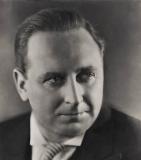 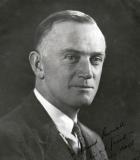
Parry Jones Harold Williams
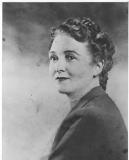
Isobel Baillie
Биографию Тома Пурвиса я так и не нашёл, а вот биография Клары Серены есть тут, но сайт почему-то то работает, то не работает. Когда я начал готовить материал, он работать перестал.
**********
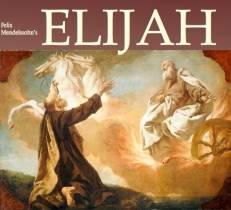
Elijah is an oratorio written by Felix Mendelssohn in 1846 for the Birmingham Festival. It depicts various events in the life of the Biblical prophet Elijah, taken from the books 1 Kings and 2 Kings in the Old Testament. This piece was composed in the spirit of Mendelssohn's Baroque predecessors Bach and Handel, whose music he loved. In 1829, Mendelssohn had organized the first performance of Bach's St Matthew Passion since the composer's death, and was instrumental in bringing this and other of Bach's works to widespread popularity. In contrast, Handel's oratorios never went out of fashion (in England at any rate). Mendelssohn prepared a scholarly edition of some of Handel's oratorios for publication in London. Elijah is modeled on the oratorios of these two Baroque masters; however, the style clearly reflects, in its lyricism and use of orchestral and choral colour, Mendelssohn's own genius as an early Romantic composer. The work is scored for four vocal soloists (bass/baritone, tenor, alto, soprano), full symphony orchestra (including trombones, ophicleide, organ), and a large chorus singing usually in four, but occasionally eight or three (women only) parts. The part of Elijah is sung by the bass/baritone and is a major role. Mendelssohn originally composed the work to a German text by his friend Karl Klingemann, who earlier had provided him with the libretto for his comic operetta Die Heimkehr aus der Fremde. Upon being commissioned by the Birmingham Festival to write an oratorio, however, Mendelssohn had the libretto translated into English, and the oratorio was premiered in the English version.
Part I
Introduction: As God the Lord of Israel liveth (Elijah) – Overture
Help, Lord! (chorus)
Lord! bow thine ear to our prayer! (chorus, soprano, alto)
Ye people, rend your hearts (Obadiah)
If with all your hearts (Obadiah)
Yet doth the Lord see it not (chorus)
Elijah! get thee hence (Angel I)
Now Cherith’s brook is dried up (Angel I)
What have I to do with thee? (Widow, Elijah)
Blessed are the men who fear him (chorus)
As God the Lord of Sabaoth liveth (Elijah, Ahab, chorus)
Baal, we cry to thee; hear and answer us! (chorus)
Call him louder, for he is a god! (Elijah, chorus)
Call him louder! he heareth not! (Elijah, chorus)
Lord God of Abraham, Isaac and Israel! (Elijah)
Cast thy burden upon the Lord (quartet)
O thou, who makest thine angels spirits (Elijah, chorus)
Is not his word like a fire? (Elijah)
Woe unto them who forsake him! (alto)
O man of God, help thy people! (Obadiah, Elijah, chorus, Youth)
Thanks be to God (chorus)
Part II
Hear ye, Israel (soprano)
Be not afraid, saith God the Lord (chorus)
The Lord hath exalted thee (Elijah, Queen, chorus)
Woe to him, he shall perish (chorus)
Man of God, now let my words be precious (Obadiah, Elijah)
It is enough; Lord take my life (Elijah)
See, now he sleepeth (tenor)
Lift thine eyes, lift thine eyes (chorus)
He, watching over Israel, slumbers not (chorus)
Arise, Elijah, for thou hast a long journey (Angel I, Elijah)
O rest in the Lord (Angel I)
He that shall endure to the end, shall be saved (chorus)
Night falleth round me, Lord! (Elijah, Angel II)
Behold! God the Lord passeth by! (chorus)
Above him stood the Seraphim (alto)
Holy, holy, holy (chorus)
I go on my way (Elijah)
For the mountains shall depart (Elijah)
Then did Elijah the prophet break forth (chorus)
Then shall the righteous shine forth (tenor)
Behold, God hath sent Elijah (soprano)
But the Lord, from the north hath raised one (chorus)
O come everyone that thirsteth (quartet)
And then shall your light break forth (chorus)
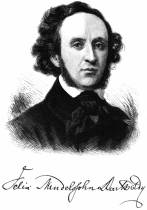
Felix Mendelssohn Elijah, Op.70
Parry Jones, tenor
Harold Williams, baritone Tom Purvis, bass-baritone Clara Serena, contralto Isobel Baillie, soprano Wireless Singers
BBC National Chorus BBC National Orchestra Stanford Robinson
1930 (recorded in Central Hall, Westminster)
Запись мне в своё время прислал Nibelung
|

